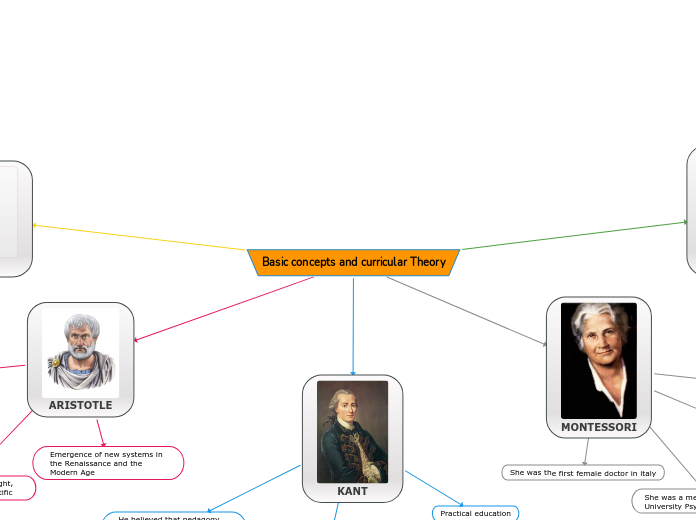Basic concepts and curricular Theory

PLATO
The center of Plato's philosophy is his theory of forms or ideas.
Knowledge
Ethical theory
Psychology
Concept of the State
Conception of art
Description of his utopia
He imagined a just society

ARISTOTLE
addressed all major areas of philosophy
Metaphysics
Nature philosophy
Knowledge theory
Logic
Anthropology
Ethics
Politics
Aesthetics
He dominated Western thought, both philosophical and scientific
Emergence of new systems in the Renaissance and the Modern Age

KANT
He believed that pedagogy transforms education into systematic knowledge.
Physical education
Student must show submission and obedience is supported by exercise and discipline.
Practical education
Student is allowed to reflect and his freedom is always present a moral force that is based on maxims.

JEAN-JACQUES ROUSSEAU
Known as the "liberator of the child and as the father of modern progressive education”.
Process of education in a child must start from the understanding the nature of the child, knowing his interests and particularities.
Interaction with the physical world through games is one of the ways in which the child begins to know.
Child would be able to develop the sense of discernment, a quality that allows the child to differentiate between him and the world around.

MONTESSORI
In 1907, she founded the first Children's House, in San Lorenzo, Rome, where the child developed with dignity, freedom and independence.
She was a member of the University Psychiatric Clinic of Rome
She was the first female doctor in italy
Through observation, she concluded that the development of the child in school is better in a loving environment.
